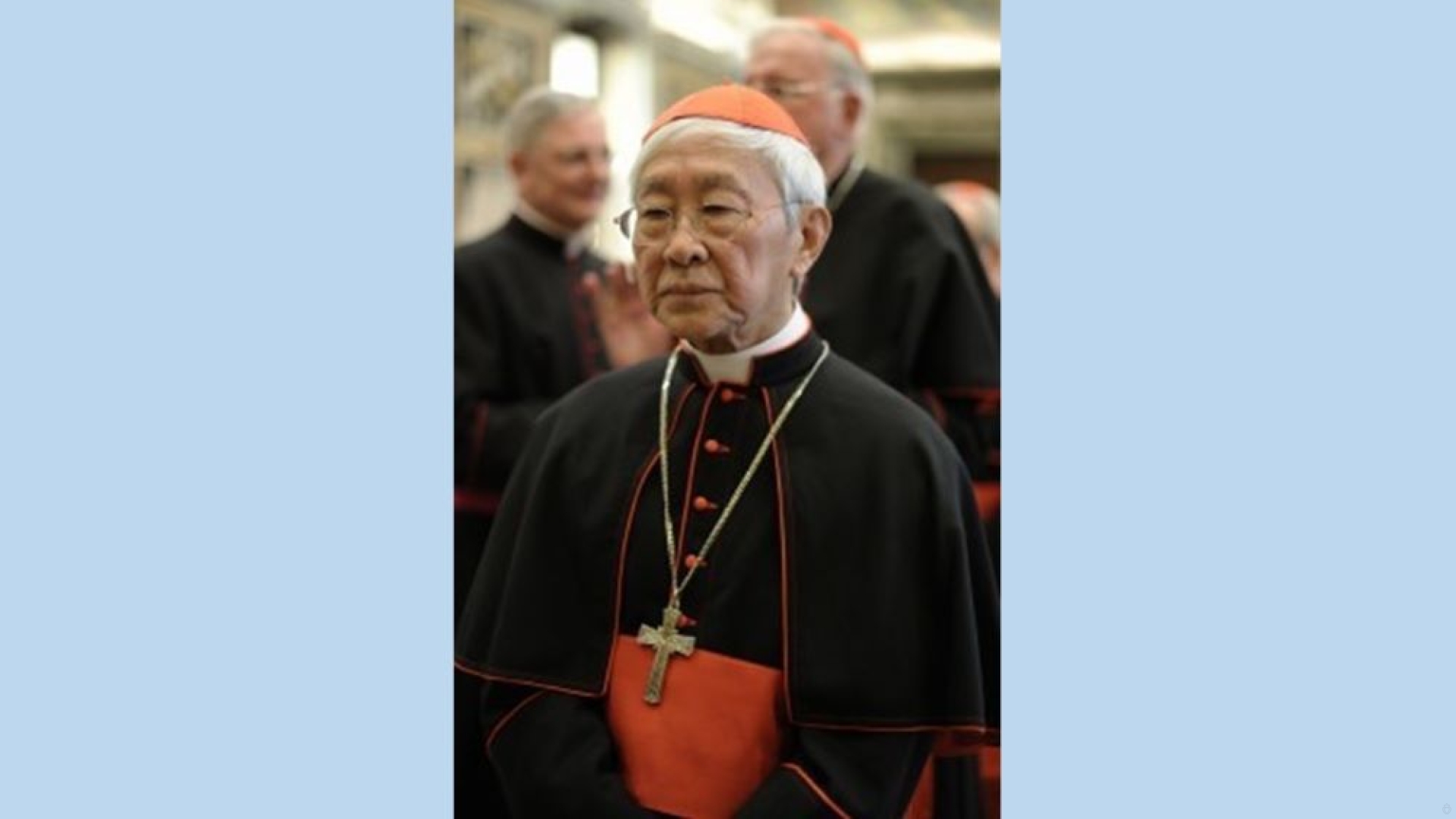Cardinal Zen Criticizes the Synod and Fiducia Supplicans

Cardinal Joseph Zen Ze-kiun, archbishop emeritus of Hong Kong, age 92, published on his blog a long criticism of the Synod of Bishops as well as Fiducia supplicans, in which he accuses the Synod Secretariat of presenting a new ecclesiology which “can change everything, the doctrine of faith and the discipline of the moral life.”
Cardinal Zen starts from the observation of the general rapporteur of the Synod, Cardinal Jean-Claude Hollerich: “synodality is not a concept, it is a process and it seems that it is progressing well.” And he retorts: “But if there is no clear concept of synodality, on what criterion can we affirm that the process was synodal and that the Church is becoming synodal?”
After a long digression on the diocesan synod held in Hong Kong by his predecessor, Cardinal John Baptist Wu, the cardinal returns to the word “synodality” wondering what it means. He notes that the Instrumentum laboris of the recent Synod speaks of an undefined synodality, of a “democracy of the baptized,” and he wonders what exactly this is about.
It is then that he launches this judgment: “This vision, if it is legitimized, can change everything, the doctrine of faith, and the discipline of the moral life.” He hears the cries of protest: “Conspiracy theory!” Conspiracy theory!” that some will throw at him. But he first recalls the famous note in Amoris laetitia, then the resolution on the “viri probati” of the Synod of the Amazon.
He continues with the German Synodal Path, built on the question of “sexual abuse attributed to clericalism” and which concludes “that there is a serious problem in the structure of the Church which will require its complete overhaul (inversion of the pyramid? ) [allusion to an image of Pope Francis - Ed.], and the sexual ethics of the Church must be updated to adapt to modern culture.”
He notes that “this synodal path has not yet been decisively rejected.” Finally he recalls the “Dutch pastoral council” movement which “exploded in the aftermath of Vatican II (with the new Dutch catechism) and which led the Church in that country to languish today as if it were moribund.”
Criticism of the Preparatory Phase
Cardinal Zen thinks that “for the promoters of the Synod, the first preparatory phase of the Synod was a great failure. Apparently, they wanted to collect an abundance of experimental facts as a basis for the entire subsequent construction of the synodality edifice.” But the very low participation rate (barely 1%) and the misunderstanding of the goal did not allow this.
He continues with criticism of the second (continental) preparatory phase and its emphasis on “sharing experiences”; he notes that the widely used “conversation in the Spirit” is not a discussion. And that imposing “this method on the work of the Synod is a manipulation aimed at avoiding discussions. This is psychology and sociology, not faith or theology.”
Criticism of the Synod in Rome
The cardinal expressed his great disappointment at having “noted that this phase had begun with the same method as the continental phase, a method which does not favor the resolution of problems.” And, “more seriously,” given the large number of lay people with the right to vote, it was “no longer a Synod of bishops.”
He adds: “The Pope can summon any assembly to give it the opinion he wishes. But in synods of bishops, only bishops can vote. Calling the recent hybrid assembly the first session of the Synod of Bishops is a serious misnomer.” And he marks as very worrying the fact that the Secretariat of the Synod of Bishops has been renamed the Secretariat of the Synod in the Pontifical Directory.
The high prelate concludes that “the first session must therefore not be understood as a true Synod, but only as a new preparation for the second session which alone can rightly be called a Synod of Bishops, and which will conclude with resolutions passed only by bishops.” At least that is the wish of the former archbishop of Hong Kong.
The Fiducia supplicans Declaration
Cardinal Zen then comes to the Declaration Fiducia supplicans of the Dicastery for the Doctrine of the Faith, which justifies the blessing of homosexual couples in certain circumstances. “It was a surprise at first, then great confusion. A press release, dated January 4, 2024, seemed like a half-retraction of the previous Declaration.”
The surprise first. The porporato recalls the dubia sent to the Pope by five cardinals in July: “five questions to which we hoped to obtain a clear answer.” He recalls the “incredible speed” of the long response received. He points to “the arsenal of the Synod Secretariat prepared to counter contrary opinions.” Fiducia supplicans only develops this already long response to the dubia.
A very unpleasant surprise, adds the text: the cardinal considers that it was more than reasonable to wait for the next session of the Synod, after a serious discussion, to provide a solution. “To anticipate such a discussion is an incredible act of arrogance and a lack of respect for the Synod Fathers.”
Finally “the Declaration has inevitably caused great confusion, and threatens a serious division never before seen in the Church” he concludes.
(Source : oldyosef – FSSPX.Actualités)
Illustration : Vatican.va





